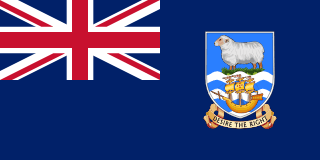Falkland Islands - Environment

As far as the environment of Falkland Islands is concerned, there have been . As for nvironment - international agreements, we have; .
About the environment of Falkland Islands
| Climate | We have cold marine; strong westerly winds, cloudy, humid; rain occurs on more than half of days in year; average annual rainfall is 60 cm in Stanley; occasional snow all year, except in January and February, but typically does not accumulate |
|---|---|
| Revenue from forest resources | |
| Revenue from coal | |
| Waste and recycling | Municipal solid waste generated annually: |
| Total renewable water resources | |
| Major rivers (by length in km) | |
| Land Use | |
| Agricultural land | 93.2% (2023 est.) |
| Agricultural land: arable land | arable land: 0% (2022 est.) |
| Agricultural land: permanent crops | permanent crops: 0% (2022 est.) |
| Agricultural land: permanent pasture | permanent pasture: 93.2% (2023 est.) |
| Forest | 0% (2022 est.) |
| Other | 6.8% (2023 est.) |
| Urbanization | |
| Urban population | 79.7% of total population (2023) |
| Rate of urbanization | 0.53% annual rate of change (2020-25 est.) |
| Major urban areas (Pop) | 2,000 STANLEY (capital) (2018). |
All Important Facts about Falkland Islands
Want to know more about Falkland Islands? Check all different factbooks for Falkland Islands below.
-
 Falkland Islands Factbook
Falkland Islands Factbook
-
 The Economy of Falkland Islands
The Economy of Falkland Islands
-
 Learn about the Government of Falkland Islands
Learn about the Government of Falkland Islands
-
 Communication in Falkland Islands
Communication in Falkland Islands
-
 Popular Universities in Falkland Islands
Popular Universities in Falkland Islands
-
 Enerny in Falkland Islands
Enerny in Falkland Islands
-
 Transport in Falkland Islands
Transport in Falkland Islands
-
 The Geography and society of Falkland Islands
The Geography and society of Falkland Islands
-
 The Environment of Falkland Islands
The Environment of Falkland Islands
-
 Military and security in Falkland Islands
Military and security in Falkland Islands